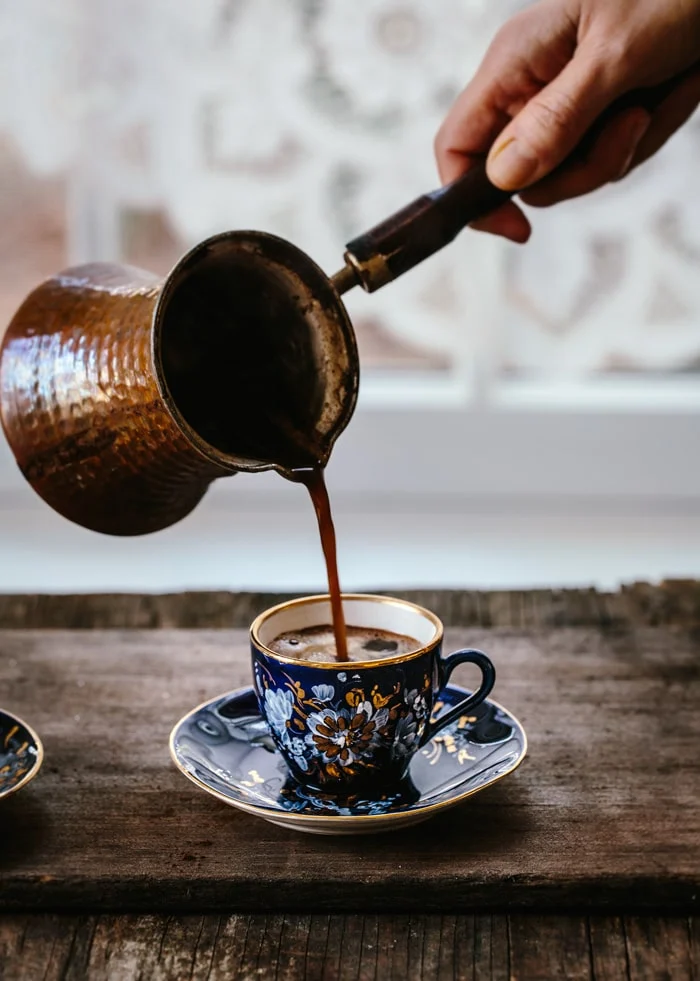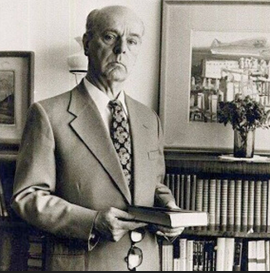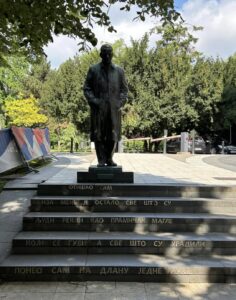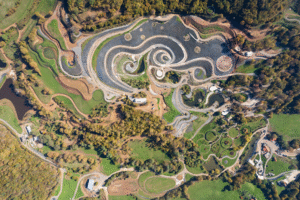Malo za Ćejf: The Pleasures of Enjoying Coffee
“Ćejf would roughly translate to something of leisure, something of pleasure, something that you do for the feel of it, for the inherited will and need for something. You’re doing it because you enjoy it and it makes you feel good, and that’s essentially what coffee is for Bosnian people.”
—Senida Husić
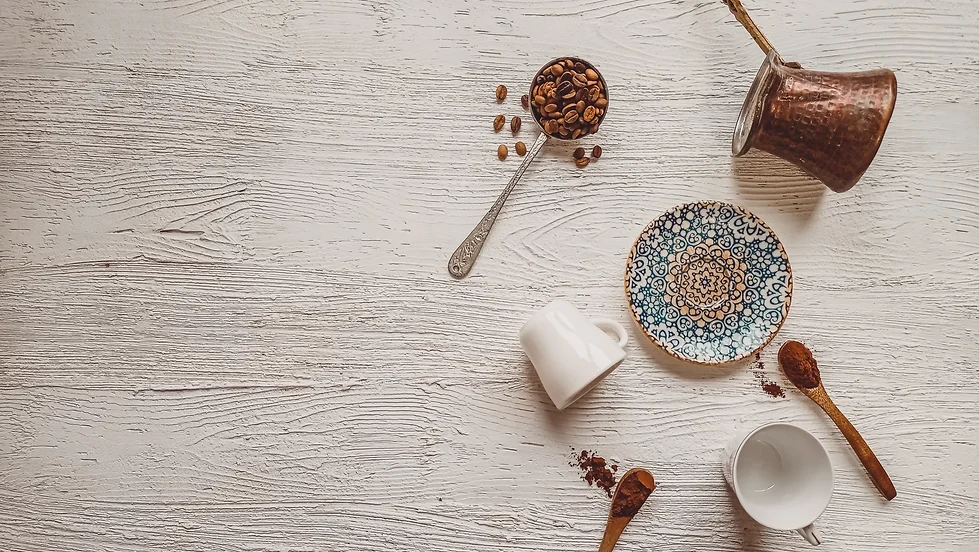
Ćejf can be defined as simple enjoyment, but for Bosnians, there’s an additional depth of feeling and meaning that’s hard to put into words. It’s a feeling often tied to things that are done slowly, deliberately, and with great satisfaction, such as listening to your favorite song, taking part in a long conversation, or, most profoundly, drinking a cup of coffee.
For Bosnians, coffee is far more than just a drink; it’s a cultural ritual and an invitation to slow down. Served in a small copper coffee pot called a džezva, dark coffee is served with sugar cubes, a glass of water, and Turkish delights (lokum). Coffee is a symbol of hospitality, friendship, and care.
At its core, ćejf represents relaxation and connection since people in Bosnia often linger over a cup of coffee for hours. Whether at home or in cafés, the Bosnian community likes sharing stories, debating politics, or simply sitting together in silence as they drink coffee. There is no rush, no need to grab a cup on the go. In this way, ćejf allows for a deliberate pause in the day that facilitates conversation, enjoyment, and presence.
In Chicago and its surrounding suburbs, Bosnians in the diaspora have recreated this atmosphere. Cafés in neighborhoods like Albany Park and Des Plaines offer Bosnian coffee on ornate trays, complete with sugar and sweets, fostering the same long conversations and ćejf from back home. Don’t be surprised if you walk into a coffee shop and are welcomed with a ćao from Bosnians enjoying coffee with good company. Wherever Bosnians are, they bring ćejf and coffee for all to enjoy.

